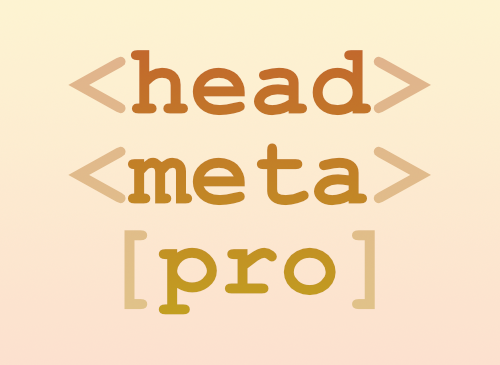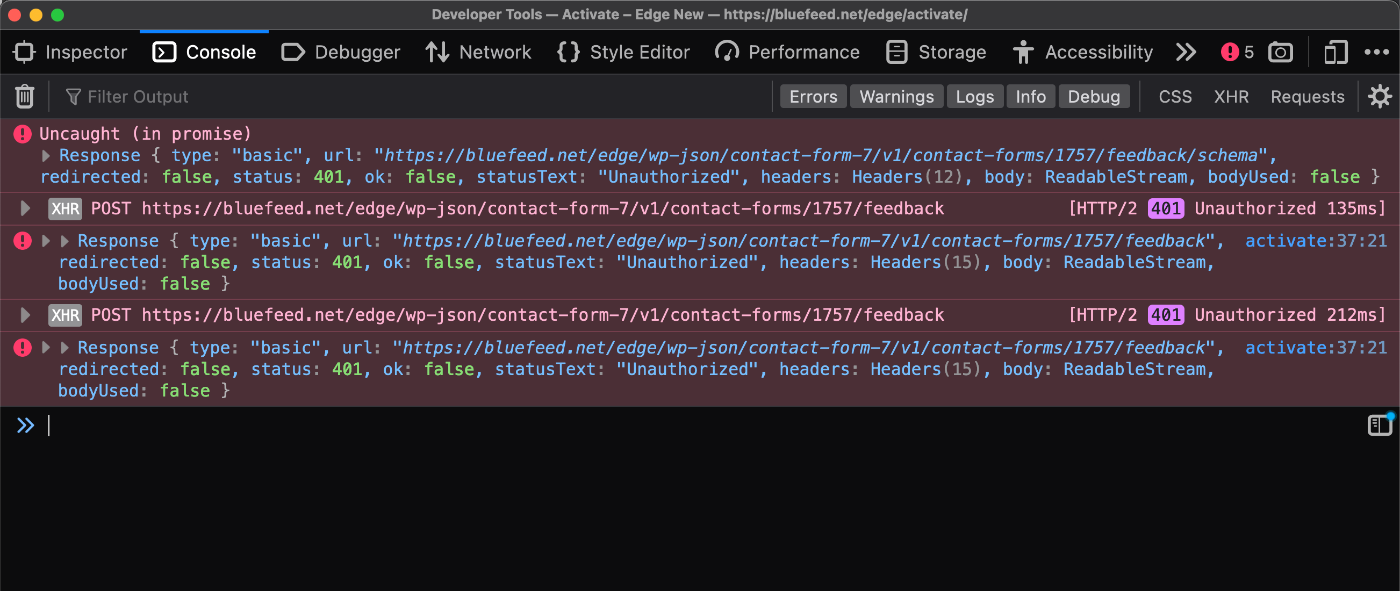
Super pumped to finally launch Head Meta Pro! This is the premium/pro version of the free plugin hosted at WordPress.org, Head Meta Data. While the free version is great and serves many sites, there are more features that I wanted to add, like complete support for all the different page-views generated by WordPress. So with the free version, you can define one set of meta tags for the entire site. With the pro version, you can define unique sets of […] Continue reading »
Quick tip for my free WordPress plugin, Simple Download Counter. SDC is optimized for successful downloads in most server environments, but there always is an exception to the rule. For example, on some servers, a download’s content-length header may be calculated incorrectly for GZIP and possibly other file formats. This tutorial explains how to define your own headers for downloads when using Simple Download Counter, so you can dial in perfect downloads for any server configuration. Continue reading »

BBQ Firewall is built to be powerful, lightweight, fast and flexible. It’s code base is kept super lean, leaving extra functionality out of core while supporting new features via simple addons. For example, this tutorial shows how to use an addon to display the total number of blocked HTTP requests on the plugin settings page. This can help you get a basic idea of the plugin’s effectiveness. Continue reading »

My free WordPress plugin, Disable WP REST API, disables the REST API for all users who are not logged in to WordPress. So if you’re using a plugin such as Contact Form 7 that requires the REST API, it’s not going to work if Disable WP REST API is active on site. But there is a way to make it work. This quick tutorial explains how to set it up in two steps. Continue reading »

Prismatic is a free WordPress plugin that adds syntax highlighting to code samples. You can use either Highlight.js or Prism.js to make your code snippets look amazing. By default, Prismatic highlights code snippets in both post content and post comments. This quick tutorial shows how to disable highlighting in post comments by adding a simple code snippet to your WordPress. Estimated time to complete ~2 minutes. Continue reading »

Prismatic is a free WordPress plugin that adds syntax highlighting to code samples. You can use either Highlight.js or Prism.js to make your code snippets look amazing. This quick tutorial shares a way to customize Prismatic to save time scrolling thru a bunch of language options. Huge time-saver and simple to implement in a few minutes. Continue reading »
I have thought a lot about making an nG WordPress plugin. The problem is that writing to .htaccess via PHP/plugin is risky with lots of ways to fail and make users confused and angry. And nobody wants that, in fact just the opposite: my plugins strive to give users the most awesome experience possible. Continue reading »

Simple Download Counter is a free WordPress plugin that does exactly what it says: counts the number of times your files are downloaded. SDC is designed for maximum ease of use. The goal is a clean, lightweight “set it and forget it” solution for keeping track of downloads. Simply add your files via the plugin settings and display download links via shortcodes. Simple Download Counter does the rest. Continue reading »

New WordPress plugin! Simple Login Notification does one thing and does it well: sends an email alert whenever an admin-level user logs in to your site. I use this plugin on all of my sites to keep an eye on any unauthorized activity. Not that I’m expecting any, but if it does happen I definitely want to know about it. The plugin size is only 4 KB (zipped) with virtually zero impact on performance or anything else. Win win win, […] Continue reading »
![Jeff Starr [ Jeff Starr (aka Perishable) ]](https://perishablepress.com/wp/wp-content/images/global/jeff-starr.jpg)
When I spend time on something, like an interview, I like to know that it was actually published somewhere. Below is an interview that I completed for a web-hosting company that apparently now is missing in action. It covers how I got into web development, upcoming projects, web security, work flow, writing books, WordPress, and more.. Continue reading »

WordPress 5.7 features a new Robots API that provides filter-based control over the robots meta tag. So if your site is running WordPress 5.7 or better, you will notice a new <meta /> tag included in the <head></head> section of your web pages. By default, the meta tag added by WordPress has a value of max-image-preview:large, which is fine IF it is the only robots meta tag on the page. If your site already has its own meta robots tag, […] Continue reading »

Have you ever wanted to make a WordPress site private? So that only specific users are allowed access? For example, for my found-images site eChunks.com, I decided to require user login in order to access any content. So now for that site, public access is not allowed, and any posts, images, and all other content is available only to logged-in users. This tutorial explains four ways to make a WordPress site private or members only, so that only authenticated/trusted users […] Continue reading »

Launching a free plugin to disable the new Application Passwords feature introduced in WordPress version 5.6. The plugin is one line of code. Install and activate to completely disable all of the Application Passwords functionality. To re-enable all Application Passwords, simply deactivate/uninstall the plugin. Easy peasy. Continue reading »

BBQ Firewall is a lightweight, super-fast plugin that protects your site against a wide range of threats. BBQ checks all incoming traffic and quietly blocks bad requests containing nasty stuff like eval(, base64_, and excessively long request-strings. This is a simple yet solid solution for sites that are unable to use a strong Apache/.htaccess firewall. Continue reading »
Forgotten post! I wrote this article way back for WordPress 5.5 but forgot to publish. Rather than delete I am posting it now. I think the information remains relevant for the most part. Read with a grain of salt :) WordPress 5.5 brings some new features that may help a lot of users. The two biggies: sitemaps and lazy loading images. This rundown post explains a bit about each, and shares some free plugins to help should you need to […] Continue reading »

WordPress 5.5 and beyond features built-in sitemaps that are enabled by default. For new users and sites this may be a good thing. Now users don’t have to bother with thinking about how to implement a sitemap. Like with Privacy control, WordPress just does it for you automagically. BUT for the millions of sites that already have a sitemap thanks to any of the excellent and free sitemap plugins — that’s like maybe 5–10 million websites — well congratulations you […] Continue reading »






![Jeff Starr [ Jeff Starr (aka Perishable) ]](https://perishablepress.com/wp/wp-content/images/global/jeff-starr.jpg)



